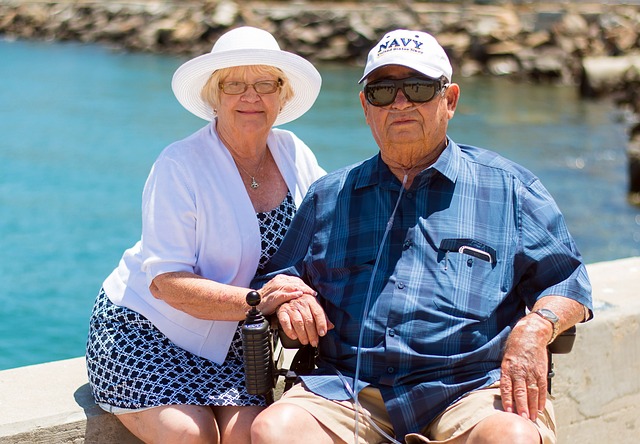Grandparents in Oregon seeking custody or visitation rights face a complex process governed by state laws prioritizing the child's best interests. Legal custody allows grandparents to make significant decisions, while visitation ensures quality time. Understanding Oregon's custody laws, involving factors like relationship dynamics and stability, is crucial for successful applications. Navigating this process requires legal guidance, comprehensive evidence, and a deep understanding of the child's well-being as the top priority. Resources like the Oregon Law Center assist grandparents in securing positive outcomes within Oregon's family custody system.
In Oregon, grandparent custody rights play a vital role in family dynamics. Understanding the complex web of custody laws is essential for grandparents seeking or challenging custody arrangements. This comprehensive guide delves into the legal insights surrounding grandparent custody in Oregon. From determining who can apply and the factors influencing decisions to the step-by-step legal process, this article offers valuable resources and guidance for navigating Oregon’s family custody laws, ensuring every grandparent is equipped with the knowledge needed to advocate for their rights.
- Understanding Grandparent Custody Rights in Oregon: A Comprehensive Overview
- Who Can Apply for Custody and What Does the Law Say?
- Factors Affecting Grandparent's Custody Decisions in Oregon
- The Legal Process: Steps to Seek Custody or Challenge Existing Arrangements
- Resources and Guidance for Grandparents Navigating Oregon Family Custody Laws
Understanding Grandparent Custody Rights in Oregon: A Comprehensive Overview

In Oregon, grandparent custody rights are governed by specific laws designed to ensure the best interests of the child while also recognizing the important role that extended family members can play in a child’s life. Understanding these custody laws is crucial for grandparents seeking legal guidance or looking to navigate complex family situations. Oregon’s family law recognizes the significant bond between grandchildren and their grandparents, which can be a strong factor in custody decisions.
The state offers various options for grandparent involvement and custody, including legal custody and visitation rights. Legal custody grants grandparents the authority to make important decisions regarding the child’s upbringing, while visitation rights allow them to spend quality time with their grandchildren under designated terms. Understanding these concepts is essential as it provides a framework for grandparents to advocate for their role in a child’s life and ensures they have access to the necessary custody guidance within Oregon’s legal system.
Who Can Apply for Custody and What Does the Law Say?

In Oregon, both parents have equal rights to seek legal custody of their children, and this also extends to grandparent custody rights. Grandparents who wish to gain or maintain custody of their grandchildren can do so by filing a petition with the court. The law in Oregon is designed to protect the best interests of the child, ensuring that any decision regarding custody is made with the child’s well-being at the forefront. This means that while grandparent custody arrangements are possible, the court will consider various factors before making a ruling, such as the relationship between the grandchild and grandparent, the parent’s ability to care for the child, and any potential impact on the child’s stability.
Understanding Oregon’s custody laws is crucial for grandparents looking to apply for legal custody. The state provides guidance on the process, which includes gathering relevant documentation, preparing legal paperwork, and attending court hearings. It’s important for grandparent custodial applicants to be aware of their rights and obligations under these laws. This knowledge can help ensure a smooth and successful custody application process in Oregon.
Factors Affecting Grandparent's Custody Decisions in Oregon

In Oregon, grandparent custody cases are governed by a range of factors that courts consider when determining the best interests of the child. Understanding these factors is crucial for both grandparents seeking custody and parents facing potential relocation or other changes. State laws recognize the unique bond between grandparents and grandchildren, aiming to preserve family relationships whenever possible. Key considerations include the grandparent’s relationship with the child, stability and ability to provide a nurturing environment, and the child’s desire or preference (if age-appropriate). Courts also evaluate the parent’s fitness and any history of domestic violence or substance abuse.
Additional factors such as geographical proximity, existing parenting plans, and the potential impact on siblings are taken into account. Oregon family custody laws prioritize the stability and well-being of children, often encouraging shared custody arrangements when feasible. Grandparents seeking legal custody rights must gather comprehensive evidence demonstrating their capacity to care for the child, while also addressing any concerns regarding parental involvement or other relevant parties’ input. This custody guidance ensures that decisions are made with the child’s best interests at the forefront.
The Legal Process: Steps to Seek Custody or Challenge Existing Arrangements

Seeking or challenging custody in Oregon involves a thorough understanding of the state’s family law. The process begins with evaluating the specific circumstances, including the child’s age, the current living situation, and the relationship between the grandparents and the minor child. If the goal is to obtain legal custody, the first step is to consult with an attorney who specializes in Oregon grandparent custody to ensure all necessary documentation is prepared. This may include petitions, affidavits, and other legal forms.
Once the paperwork is in order, the next phase involves filing the documents with the appropriate Oregon court. The court will then schedule a hearing where both parties present their cases. During this process, it’s crucial for grandparents to demonstrate their fitness to care for the child, highlighting any positive relationships, stable living conditions, and the ability to provide a nurturing environment. Understanding custody laws in Oregon is essential to navigate this legal journey successfully and secure the desired outcome.
Resources and Guidance for Grandparents Navigating Oregon Family Custody Laws

Navigating Oregon’s family custody laws can be a complex task for grandparents seeking to establish or maintain legal custody rights. The state provides resources and guidance to support grandparents in these situations, ensuring their voices are heard during family court proceedings. Organizations like the Oregon Law Center for Family Relations offer valuable information and assistance tailored to grandparent custody cases.
Understanding the specific custody laws of Oregon is crucial. Grandparents should be aware of their rights and options under the law, which may include joint legal custody, temporary custody, or even permanent placement. The court typically considers the best interests of the child when making decisions, taking into account factors such as stability, love, and support from grandparents, as well as the relationship between the child and their primary caregivers. With access to the right resources and guidance, grandparent custody cases in Oregon can have positive outcomes that benefit both the family and the child.














